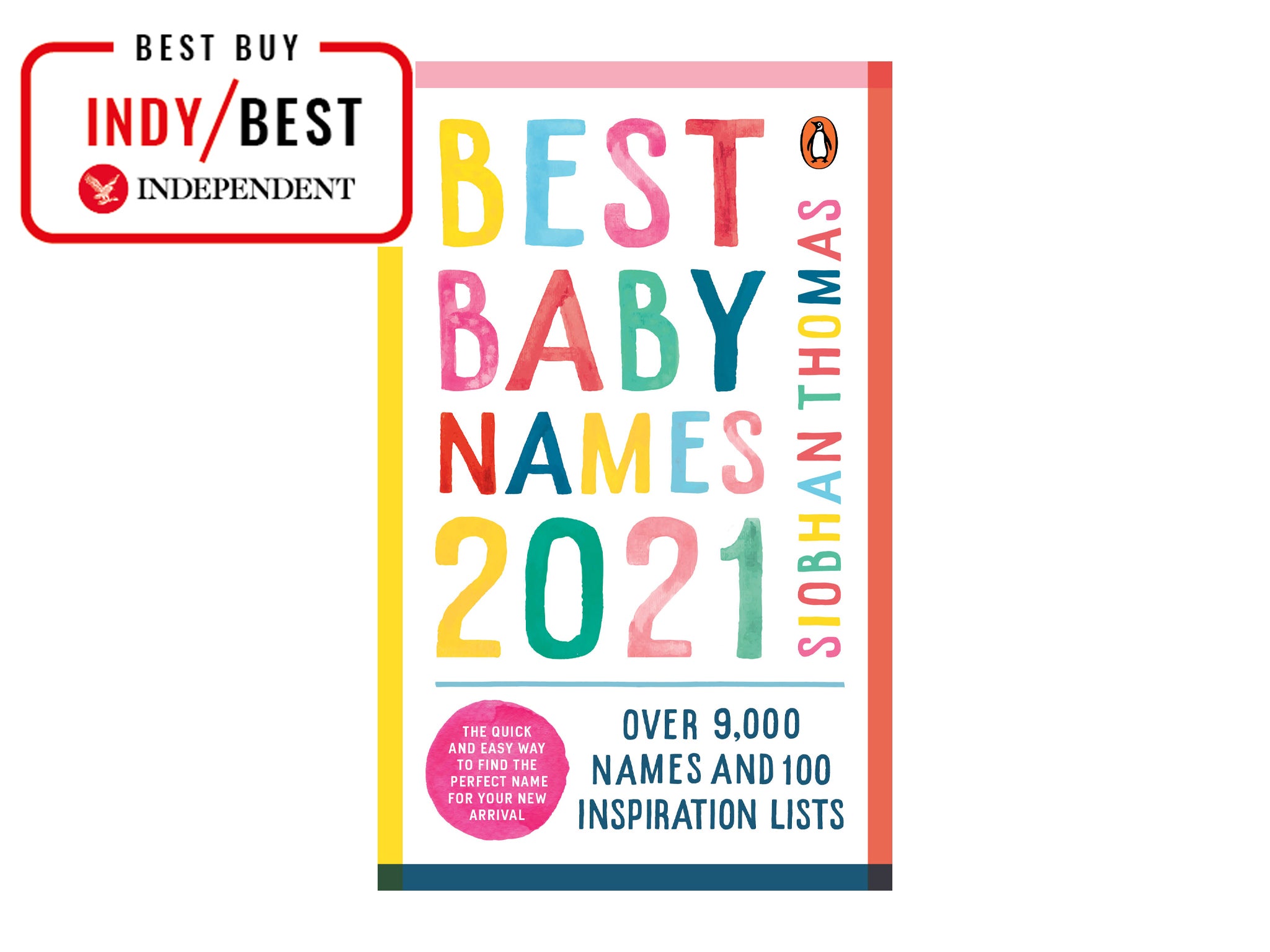
The Independent's journalism is supported by our readers. When you purchase through links on our site, we may earn commission. Why trust us?
8 best baby name books that help make the important decision easier
From gender-neutral guides to classic tomes, these are essential reading for any parents-to-be
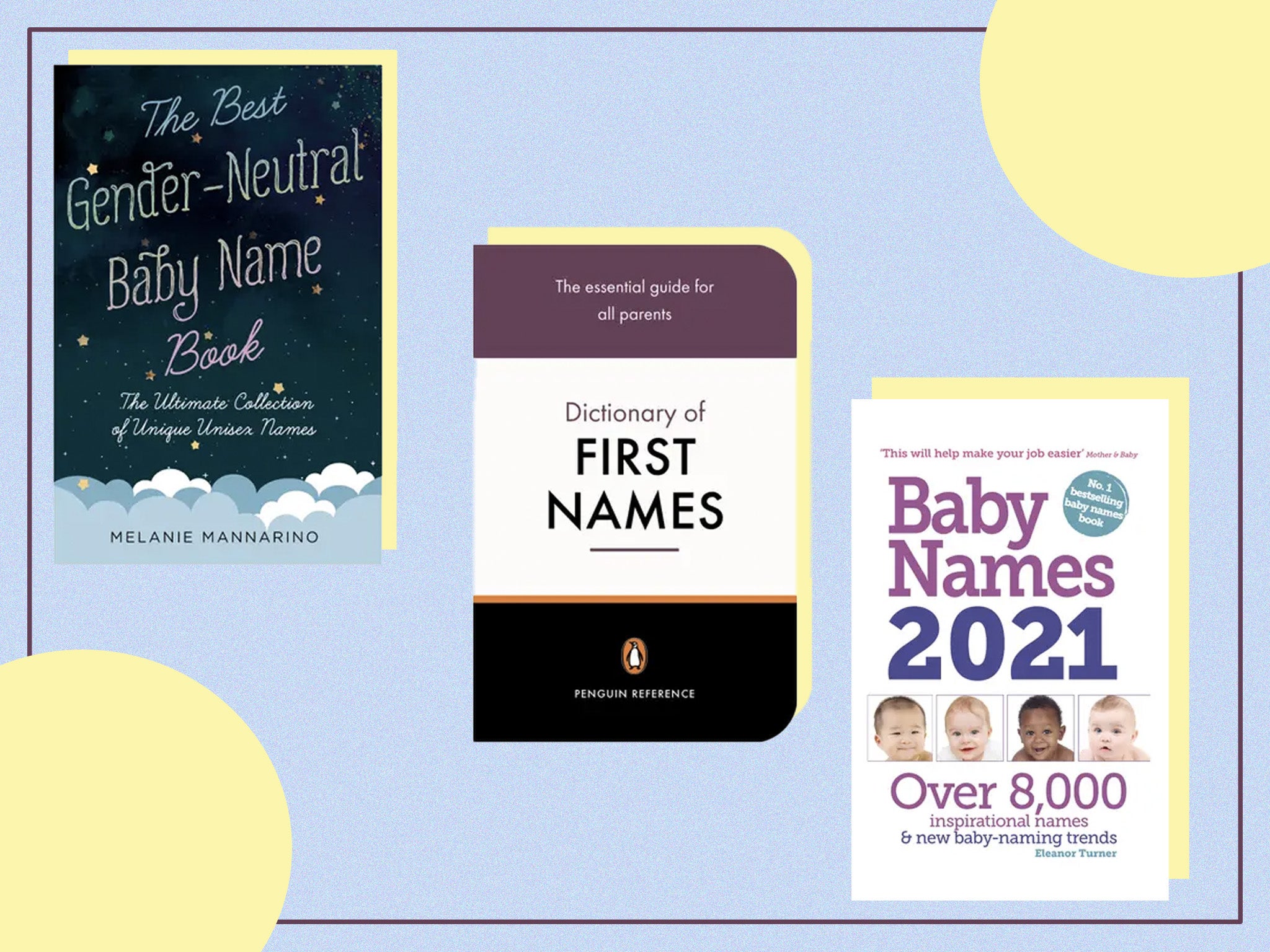

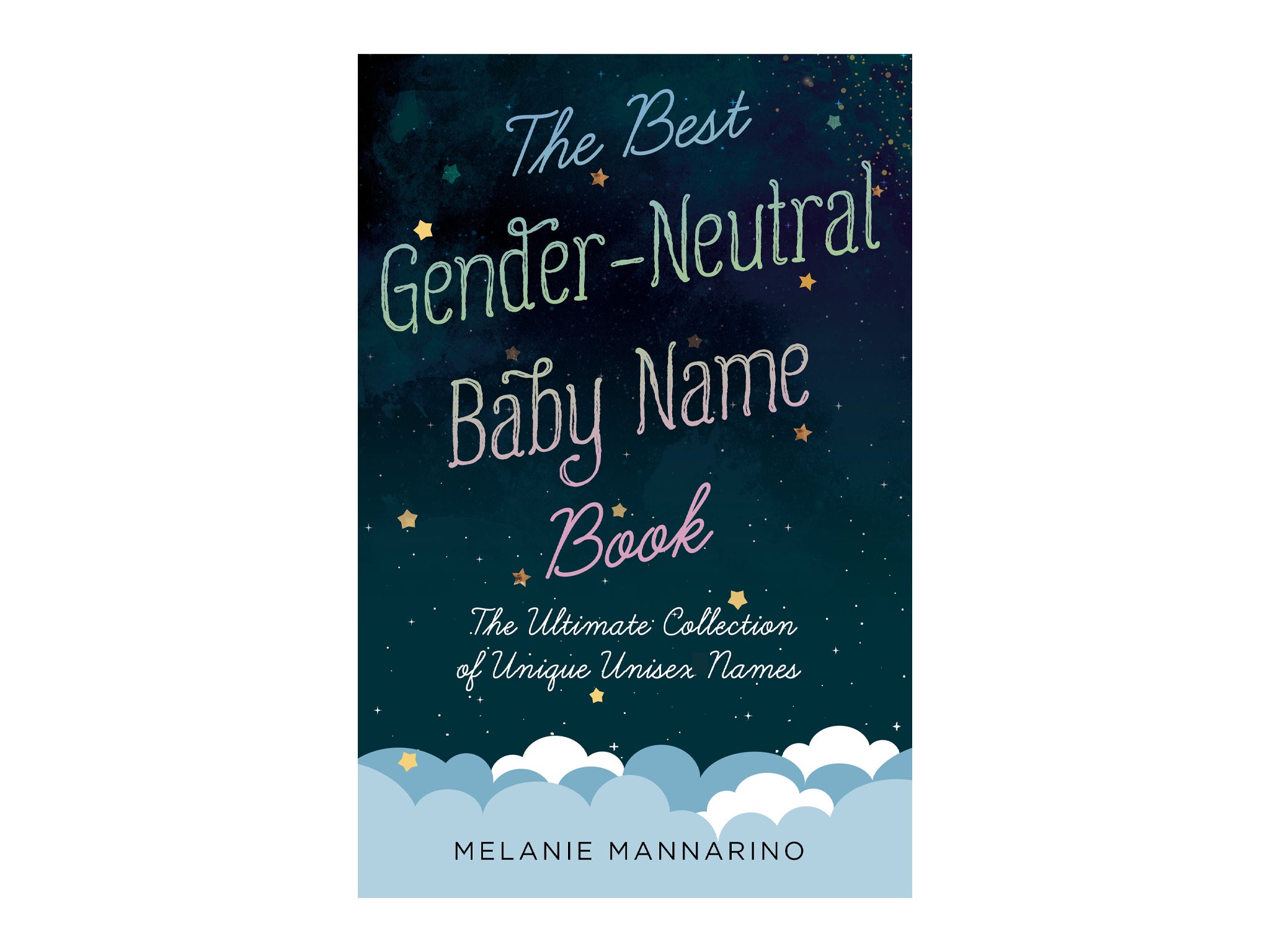 ‘The Best Gender Neutral Baby Name Book’ by Melanie Mannarino, published by Simon & SchusterRead review£9
‘The Best Gender Neutral Baby Name Book’ by Melanie Mannarino, published by Simon & SchusterRead review£9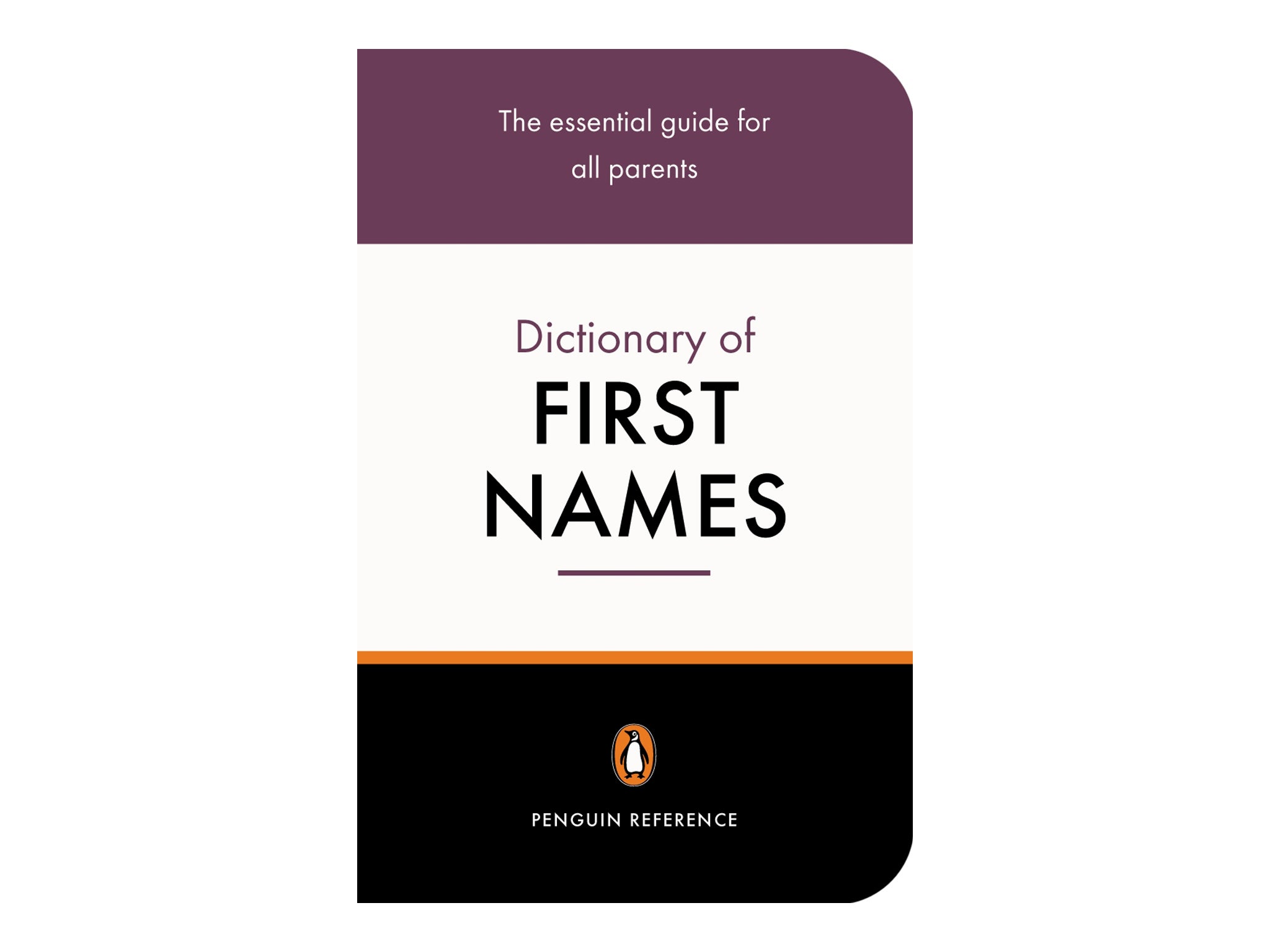
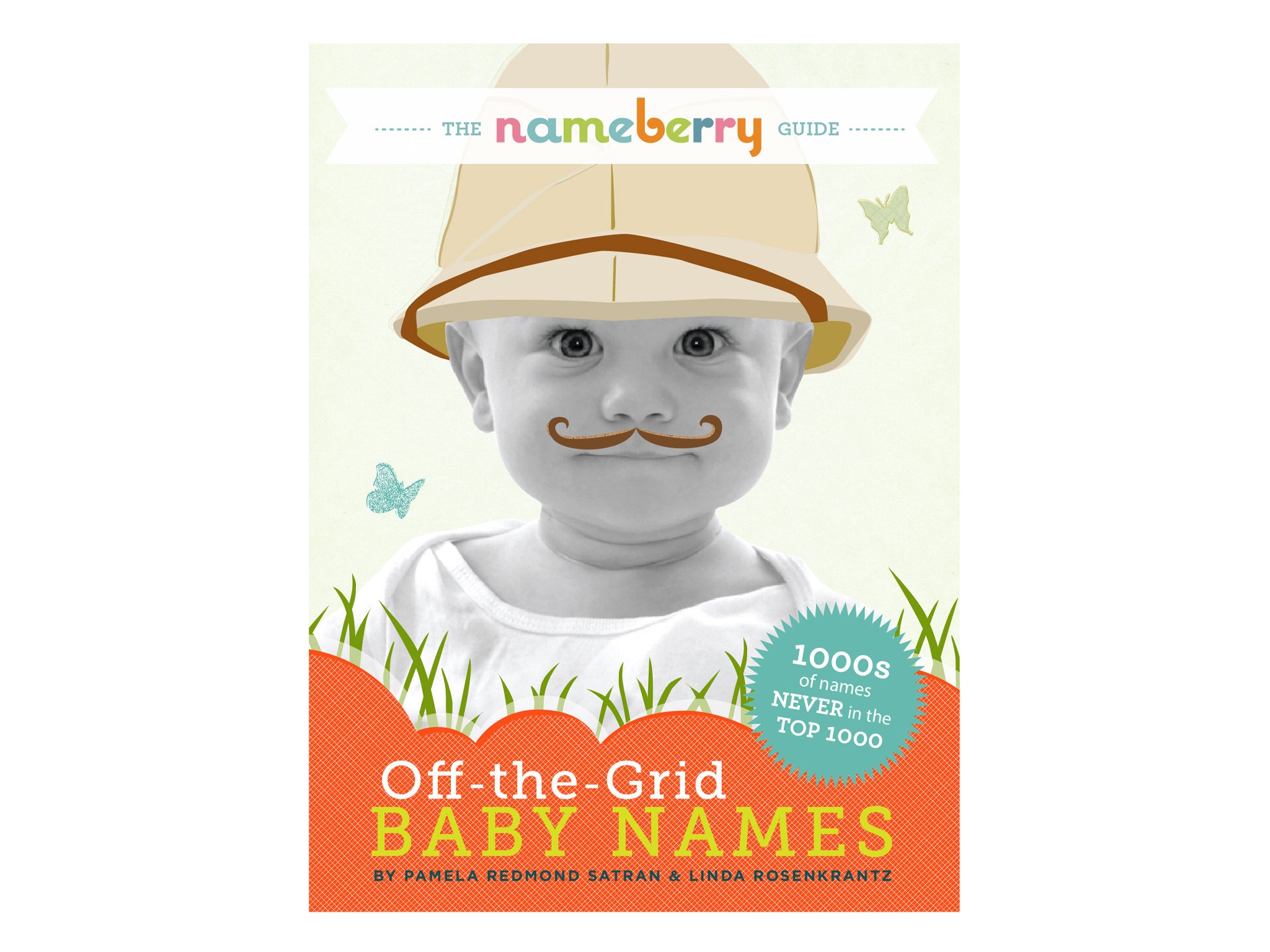 ‘The Nameberry Guide to Off-the-Grid Baby Names: 1000s of Names NEVER in the Top 1000’ by Pamela Redmond Satran and Linda Rosenkrantz, published by NameberryRead review£7
‘The Nameberry Guide to Off-the-Grid Baby Names: 1000s of Names NEVER in the Top 1000’ by Pamela Redmond Satran and Linda Rosenkrantz, published by NameberryRead review£7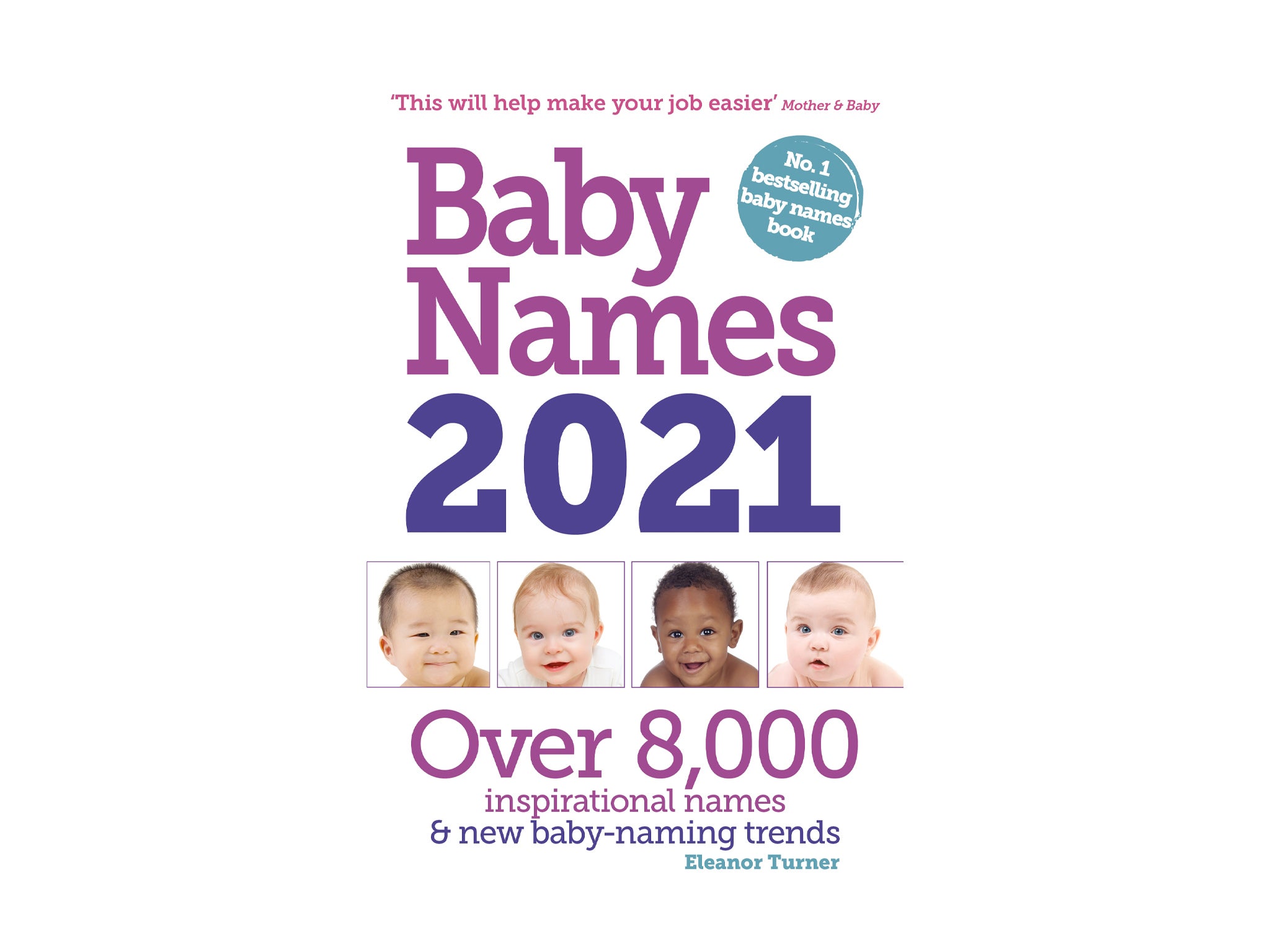
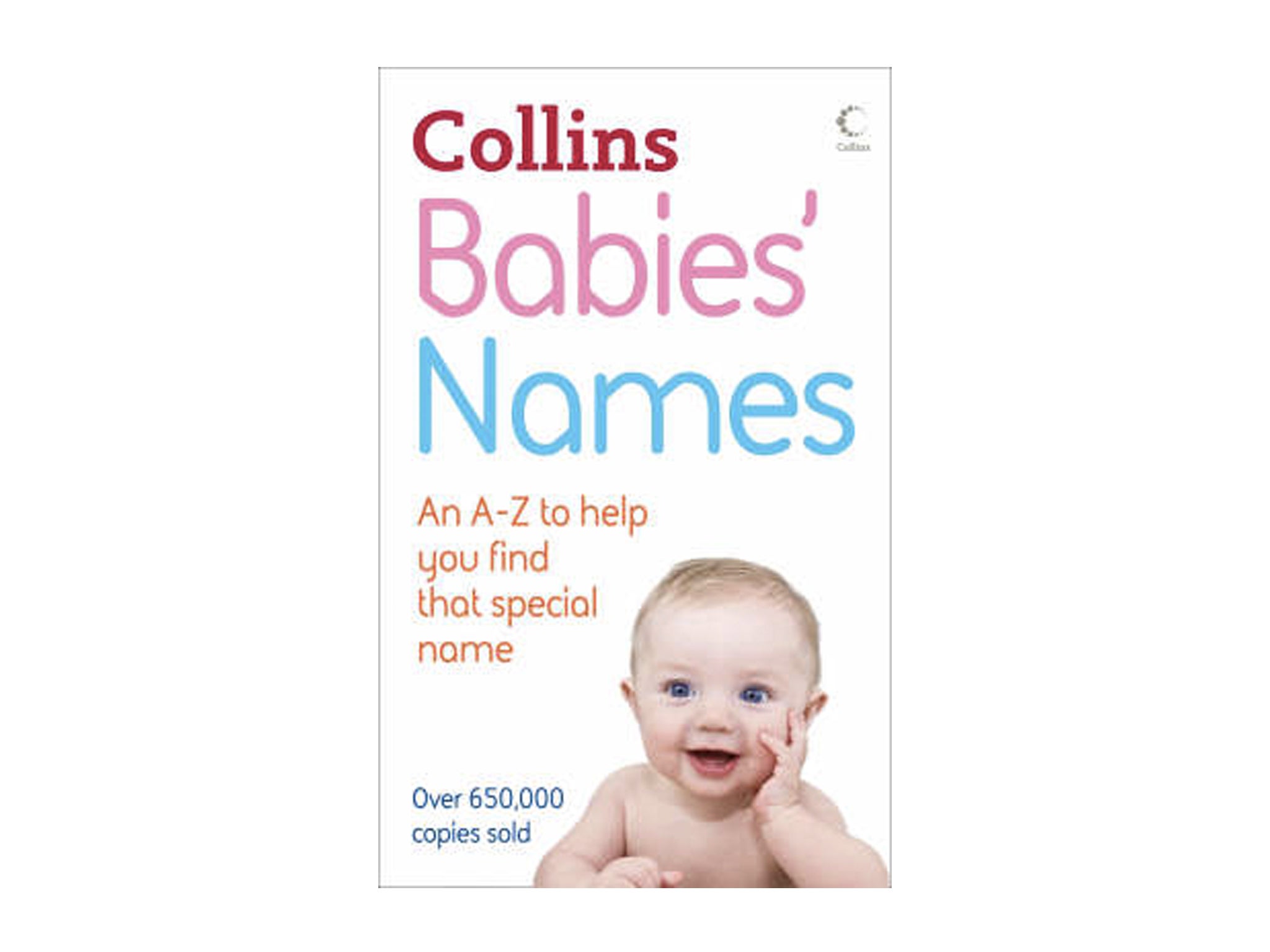
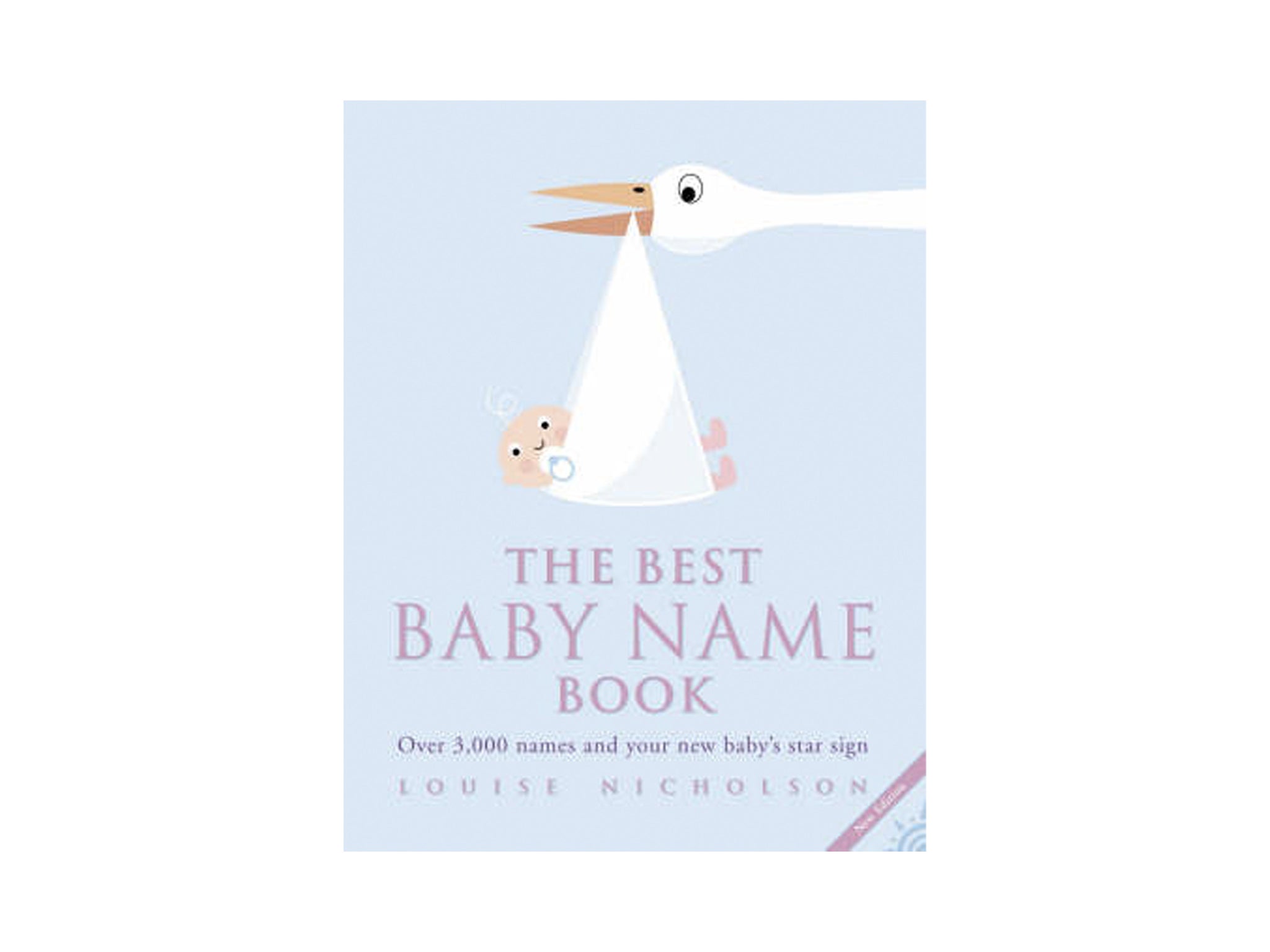 ‘The Best Baby Name Book: Over 3,000 Names and Your New Baby’s Star Sign’ by Louise Nicholson, published by Harper CollinsRead review£7
‘The Best Baby Name Book: Over 3,000 Names and Your New Baby’s Star Sign’ by Louise Nicholson, published by Harper CollinsRead review£7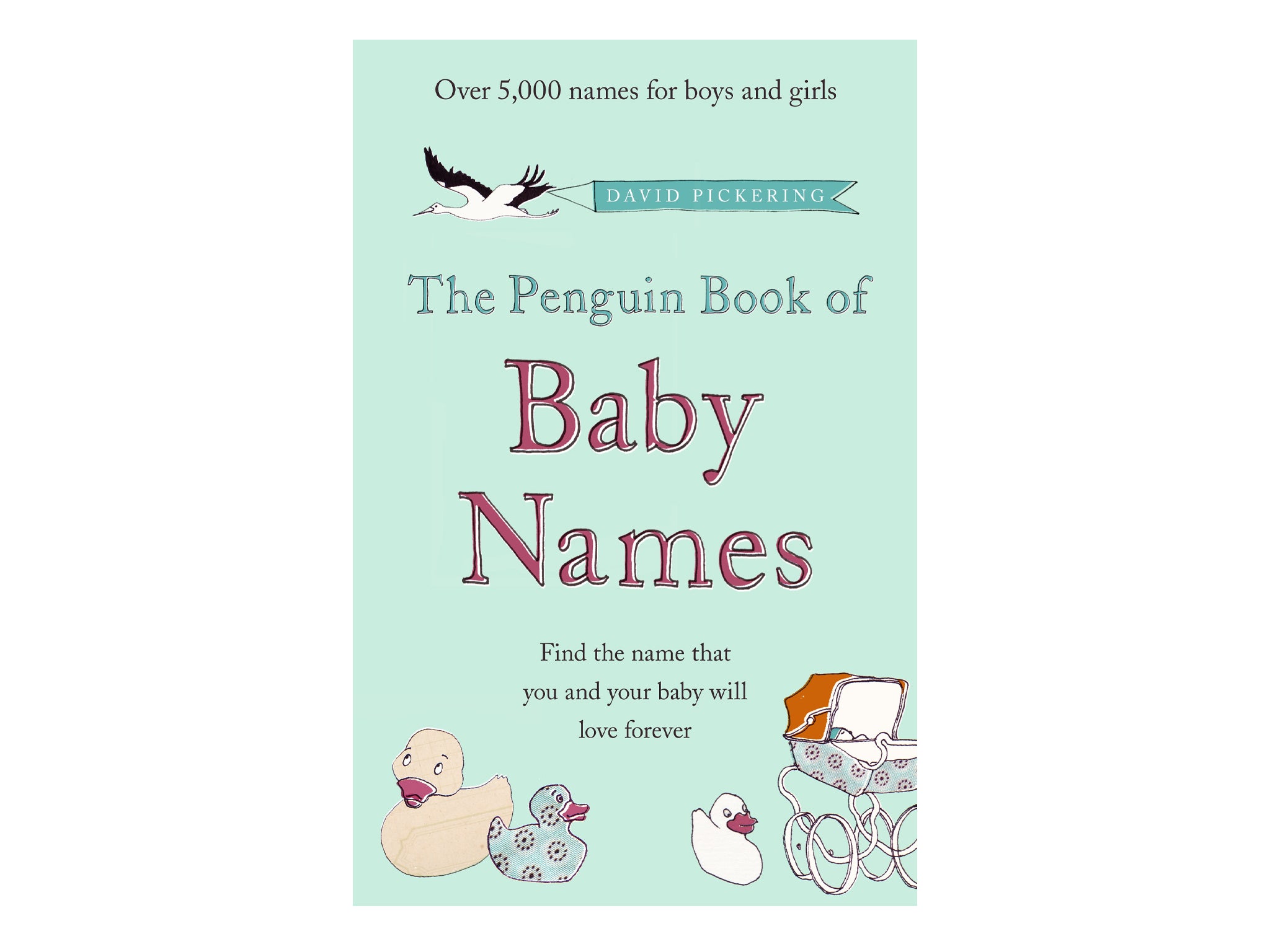
It is one of the most important and exciting decisions a parent will ever make – but naming your baby is hard. There is a lot to consider – names can be an indicator of so many things including class, status, religion and culture.
They can leave a child open to ridicule or ensure they spend their lives having to clarify spelling or resign them to sharing their name with another classmate or two.
While Oliver and Olivia are consistently in the top 10 names – Oliver has been the top boys’ name since 2013 and Olivia the top girls’ name since 2016 – every year brings about change in popularity – often to do with pop culture, politics and even a global pandemic. Last March saw the birth of twin girls who were named Covid and Corona.
But the main question you might have right now is why does anyone need a baby name book when there’s the internet?
And there are lots of answers to this: being able to write notes in the margin and then having a keepsake is probably the most resonant one. But also, books reduce screen time and interminable scrolling.
Read more:
We have picked some trusty old classic resource books as well as tomes that are hot off the press for 2021 to help you come up with the perfect name for your baby.
Some books hone in on a certain attribute – gender neutral names, say – which mean you are cutting out any names that don’t fit your remit before you’ve even begun. Others are a straightforward “dictionary” incorporating names from all over the globe and spanning centuries.
There are a lot of baby name books on the market which are self-published. We can’t speak for all such titles but would advise approaching with caution if you are a stickler for quality.
You can trust our independent reviews. We may earn commission from some of the retailers, but we never allow this to influence selections, which are formed from real-world testing and expert advice. This revenue helps to fund journalism across The Independent.
‘Best Baby Names 2021’ by Siobhan Thomas, published by Ebury

We know you shouldn’t judge a book by its cover, but we do particularly like this one with its abundance of rainbow letters; it definitely sets it apart from all the baby images typical of names books.
Boasting more than 9,000 different names, this book is physically thick and teeming with information divided into three sections – introduction and practicalities first. In this early part Thomas addresses the question in hand: what makes a good name? Anyone hoping for a formula will be disappointed but she does point out how fashion, religion, culture, travel – and negative personal experiences can affect naming.
The middle section offers lists of inspiration from film stars to royals and even famous social media celebrities – such lists might as easily help you work out what you aren’t looking for.
The last and largest part is the A-Z of names, boys first, then girls. We really liked how clearly each entry was laid out with meaning, origin, description, alternative spelling but also with pronunciation which is unusual but, we thought, most welcome. This is a really thorough and detailed volume – and hot off the press.
‘The Best Gender Neutral Baby Name Book’ by Melanie Mannarino, published by Simon & Schuster

Gender neutral names are increasingly popular –15 per cent of babies born in 2017 were given gender-neutral names, a number that’s nearly doubled in 20 years. This is just one of many noteworthy nuggets in this book which contains what should probably be described as the ultimate list of gender neutral monikers.
The introduction is short and to the point before the names are rolled out – each with the country of origin and a definition. The main A-Z list is interspersed with shorter lists with titles like “Five Tree Names That Would Make Great Baby Names”.
This book is inventive, unusual and interesting but with names like Aquarius and Neon on offer alongside the likes of Everly and Robin, it is definitely not for traditionalists!
‘The Penguin Dictionary of First Names’ by David Pickering published by Penguin

Including 5,000 names from English-speaking countries, this goes deep into each name’s history – this is actually more accurately a reference book for anyone interested in history and etymology rather than exclusively expectant parents.
You can expect to find names from as far back as 1700 – we were impressed with Pickering’s attention to detail and witty explanations. He offers plenty of attention to detail and we found this so inspiring as this book more than any other brought home how much of a sense of story is bound up in a name.
‘The Nameberry Guide to Off-the-Grid Baby Names: 1000s of Names NEVER in the Top 1000’ by Pamela Redmond Satran and Linda Rosenkrantz, published by Nameberry

We should point out that this is a book by American authors thinking specifically about the US popular names list, but that doesn’t mean that it isn’t useful to British parents-to-be.
The authors, who set up the popular website Nameberry, are at pains to point out that this is a book for parents who want unusual names – not trendy names and we agree that sometimes these qualities can seem synonymous.
Redmond Satran and Rosenkrantz used 130 years’ worth of data to find the 6,000 names in this volume – none of which ever make the top 1,000 names. So, what sort of names are enduringly unpopular? Well, they are from all over the place, including the natural world – hello Sorrel and Maple, and from the bible – Joah. There are plenty of Irish surnames like Gilby or Molloy.
The book is ordered girls first, then boys. It is carefully arranged in that there isn’t too much crammed onto each page which we think can be overwhelming. There is information on origin followed by as much as half a page and as little a line on the name itself, including how to pronounce it if necessary.
There are some total gems in here – and they’re not undesirable in any way, but they are, as the book promises, rather off grid and so any parents who are keen their child won’t share their name with a classmate, this is probably your secret weapon.
‘Baby Names 2021’ by Eleanor Turner, published by Hodder & Stoughton

This paperback contains more than 8,000 names with a section for boys and a section for girls. But it’s more than just one long list. Turner offers practical advice for the decision-making process – from other people’s unsolicited opinions to registering the name.
The book looks at research from the Office of National Statistics to draw conclusions about popularity and make predictions about how we as a society go about choosing names for our offspring. There are plenty of interesting nuggets on how trend cycles work when it comes to names which can be really insightful for parents who either really want or really do not want their baby to have a popular name. There’s even a section about naming twins and triplets which looks to be something of an art form!
‘Babies’ Names’ by Julia Cresswell, published by Harper Collins

The first edition of this book was written in 1967. This edition is from 16 years ago and so we can’t say that this is the most up-to-speed option for parents to be. But that’s not necessarily a bad thing.
We really liked the depth of explanation that Cresswell offers on each name – she really knows her stuff both linguistically and historically, meaning you’ll feel in safe hands when it comes to choosing a traditional or classically anchored name for their baby.
On the face of it, with 1,500 names included this seems light. But then you consider that these are just the “main” names not including all the variants of spelling or shortening and actually what we found was a really effective way of organising the book. A decent, super helpful resource.
‘The Best Baby Name Book: Over 3,000 Names and Your New Baby’s Star Sign’ by Louise Nicholson, published by Harper Collins

If you scoff at star signs, don’t be put off by the title. There’s plenty in this volume for parents who don’t care for astrology. Nicholson includes names from a variety of cultures across the world – Ancient Greek, Norse and Native American to name a few. She also includes traditional saints and royal names.
We thought her method of breaking up the main list with short sections and important aspects of the baby naming process was thoughtful and made the list of 3,000 names that little more digestible. In these sections there is advice on naming twins, explanations about how religion impacts naming and also about names that can carry (or not) a sense of status. This is a richly detailed book which is almost 20 years old and yet feels as insightful and relevant as any other title.
‘Penguin Book of Baby Names’ by David Pickering published by Penguin

We really enjoyed Pickering’s introduction which not only told us about three Brazilian sisters called Xerox, Photocopier and Authenticated but ended with “it may be reassuring to know that is a baby grows up to hate his or her name there remains the option of changing it for a small fee by deed poll at a Registrar’s Office.”
This book is more than 10 years old, so if you’re looking to blow people away with a modern choice of baby name – quirky spellings and all – think again. That said, there are plenty of lovely traditional and unusual names in here and we really liked the layout, finding it simple and clear to navigate. There are 5,000 names here with definitions and facts accompanying each one.
We liked that there was a glossary of Saints Days at the back so parents could consider naming their child according to the day he or she is born, which is today, an unusual thing to do but certainly adds meaning and weight to the naming process. We thought this was a really good resource, well laid out, direct and no fluff.
The verdict: Baby name books
Best Baby Names 2021 is our pick not only for being so recently released and inviting to look at, but because it is consistently clear and neat throughout and because Thomas has written a lengthy introduction which will be especially useful for first-time parents. We thought that The Best Gender Neutral Baby Name Book was a brilliant buy for anyone seeking a non-traditional moniker for their little one, while The Penguin Dictionary of First Names is absolutely fascinating as a reference book as much as anything else!
From co-sleepers to cot beds, here’s everything you need to know about buying your baby a bed
